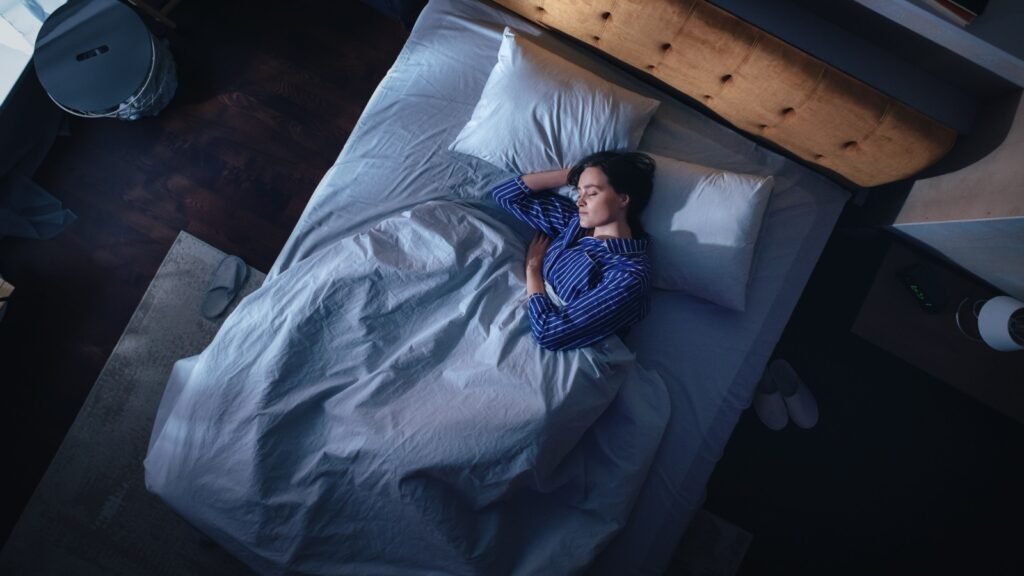Getting a good night’s sleep is one of the most important ways to stay healthy and alert. As someone who believes in being prepared for anything, I know firsthand how crucial rest is, whether you’re dealing with daily challenges or getting ready for unexpected events. Sleep impacts everything—from our mental clarity to our immune systems—and improving sleep quality isn’t just about making it through the day. It’s about having the energy and focus to respond quickly when life throws you a curveball.
Over the years, I’ve fine-tuned ways to enhance my own sleep hygiene, and these methods don’t take much to implement. The peace of mind that comes from knowing you’ll wake up feeling refreshed and ready to handle whatever comes your way is invaluable. Below are 12 practical techniques I’ve used, and I hope they’ll help you as well.
Stick to a Consistent Sleep Schedule

Going to bed and waking up at the same time each day helps regulate your internal clock. This consistency trains your body to feel sleepy at the same time each night. Even on weekends, sticking to your schedule can prevent that groggy feeling on Monday mornings and improve the overall quality of your sleep.
Create a Relaxing Bedtime Routine

Developing a calming pre-sleep ritual can signal to your brain that it’s time to wind down. Whether it’s reading, taking a warm bath, or practicing relaxation exercises, a bedtime routine helps reduce stress and promotes better sleep. Avoid stimulating activities like checking social media or watching intense TV shows, as they can make it harder to relax.
Limit Exposure to Blue Light in the Evening

Blue light from screens, such as smartphones, computers, and TVs, can interfere with your body’s production of melatonin, the hormone that regulates sleep. To combat this, try to reduce screen time an hour or two before bed. If you need to use your devices, consider using blue light filters or wearing blue light-blocking glasses.
Make Your Bedroom a Sleep Haven

Your bedroom should be a calm, relaxing space dedicated to rest. Keep the room cool, dark, and quiet to create an ideal sleep environment. Invest in a comfortable mattress and pillows, and consider blackout curtains or a white noise machine to help minimize disruptions.
Watch What You Eat and Drink

What you consume in the hours leading up to bedtime can impact your sleep. Try to avoid large meals, caffeine, and alcohol late in the day, as these can cause indigestion or disrupt sleep patterns. Instead, opt for a light snack if you’re hungry before bed, and stay hydrated throughout the day without overloading on water right before sleep.
Get Moving During the Day

Regular physical activity can improve the quality of your sleep, helping you fall asleep faster and enjoy deeper rest. However, try to avoid vigorous exercise close to bedtime, as it may leave you too energized to relax. Morning or early afternoon workouts are ideal for promoting better sleep.
Manage Stress and Anxiety

Stress is one of the leading causes of sleep disturbances. Learning to manage stress through techniques like meditation, deep breathing, or journaling can help ease your mind before bed. If racing thoughts keep you awake, try writing down your worries earlier in the evening to help clear your mind before sleep.
Limit Naps to 20-30 Minutes

While naps can be beneficial, long or late naps may interfere with your nighttime sleep. If you need to nap, try to keep it short—20 to 30 minutes is ideal—and avoid napping late in the day. This will ensure you’re tired enough when it’s time for bed.
Reserve Your Bed for Sleep

Using your bed exclusively for sleep and rest can strengthen the mental association between your bed and sleep. Try to avoid doing work, watching TV, or scrolling through your phone while in bed. Over time, this will help train your brain to see your bed as a place for relaxation and sleep only.
Expose Yourself to Natural Light

Your body’s internal clock, or circadian rhythm, is influenced by natural light. Getting sunlight during the day, especially in the morning, can help keep your sleep-wake cycle on track. Spending time outdoors or near windows during the day can make it easier to fall asleep at night.
Avoid Sleeping In on Weekends

While it may be tempting to sleep in on weekends, oversleeping can throw off your sleep schedule. Try to stick to your usual wake-up time, even on days off. If you need extra rest, a short nap in the afternoon is better than drastically changing your sleep pattern.
Try Relaxation Techniques

Incorporating relaxation techniques like progressive muscle relaxation, mindfulness meditation, or guided breathing into your bedtime routine can calm your body and mind. These methods help ease tension and anxiety, making it easier to drift into restful sleep.

